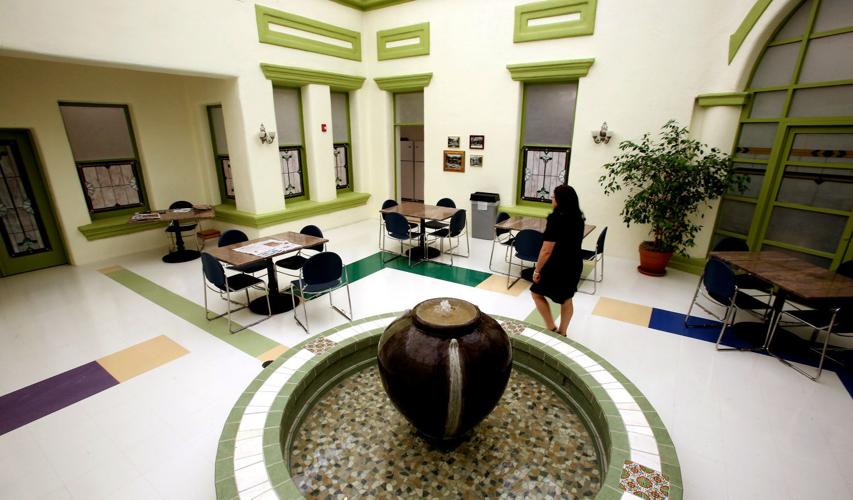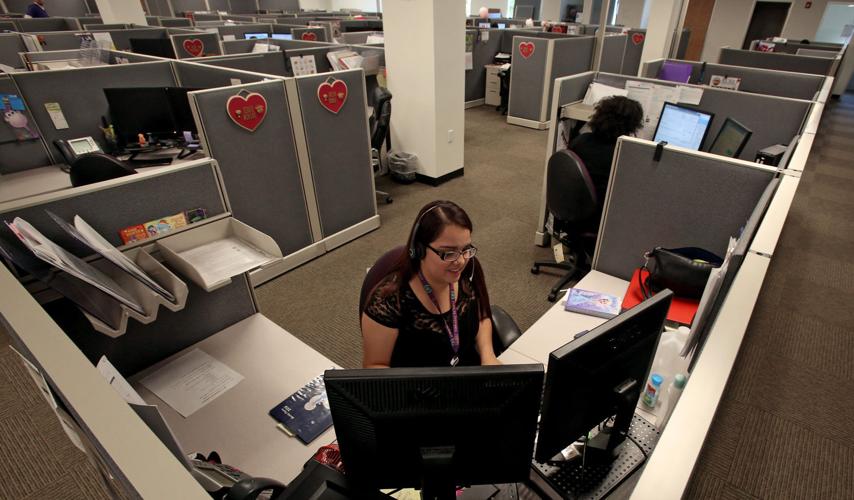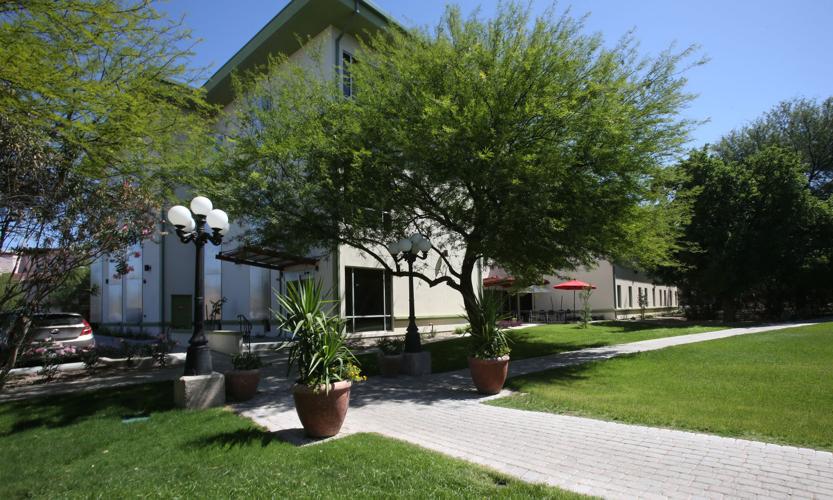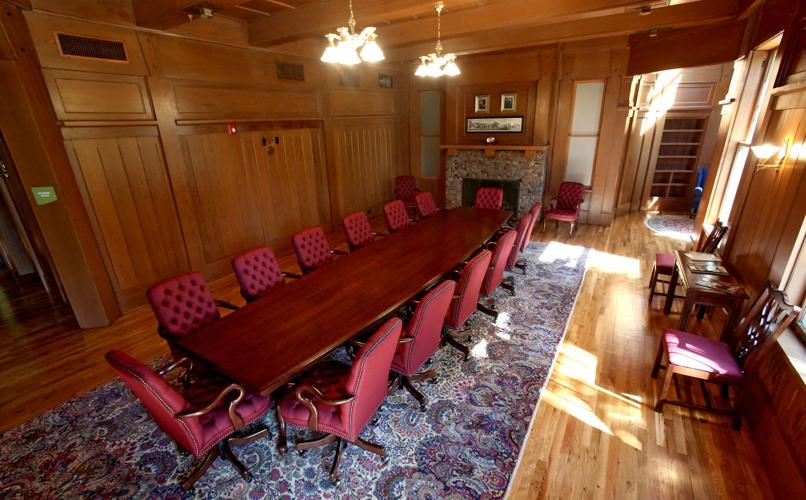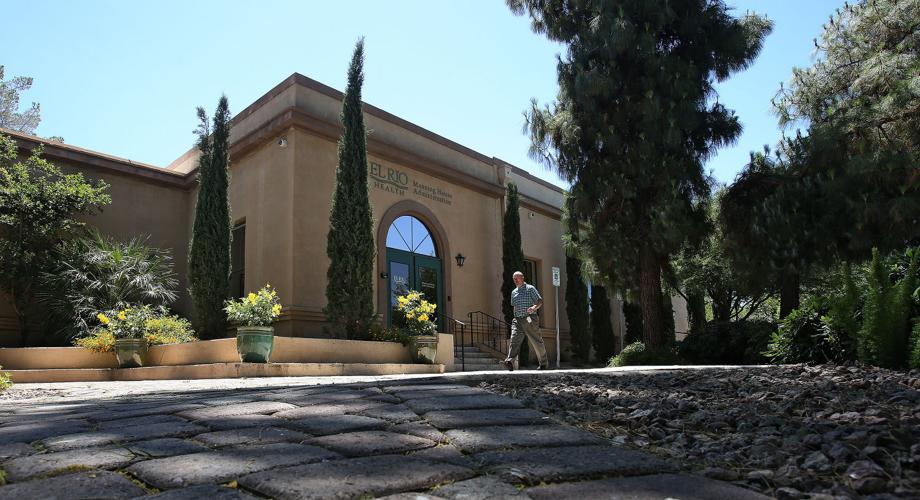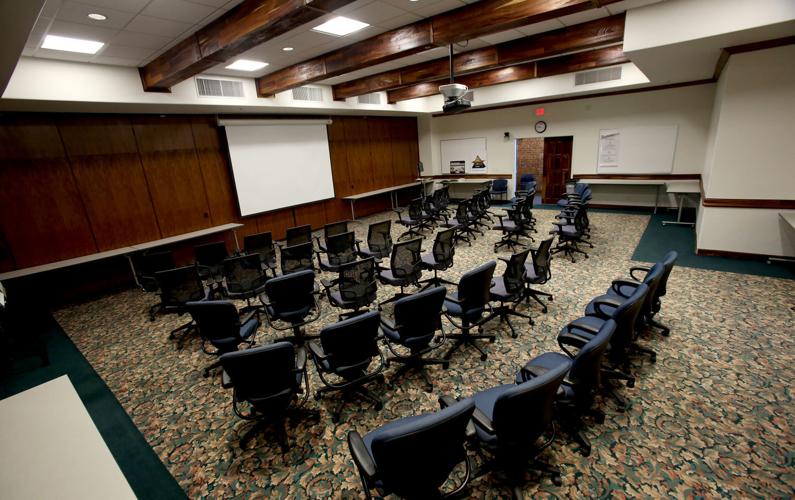Richard Spaulding watched real estate fall for years, eager for a new headquarters for El Rio Community Health Center.
Sometimes a location would pop up but there wouldn’t be enough parking. Other times, there would be adequate parking but the building was too small, said Spaulding, El Rio’s strategic planner and facilities director.
He’d just about given up when, back in 2013, someone called and asked him if El Rio — Arizona’s largest community health center — would like to buy the historic Manning House. It was about to go into foreclosure, the caller said, and one potential buyer wanted to raze it and build a resort there.
With El Rio being a non-profit, Spaulding wondered if the health center could afford it. And, if it could, could El Rio then do the necessary renovations?
El Rio could, and it did.
El Rio spent more than $11 million on the purchase, the remodeling and the upgrades at Manning House as well as on the construction of a new, three-story office building its employees call “Manning 2.” Manning 2 opened a couple of weeks ago and houses El Rio’s call center, technology department and the triage nurses and discharge care staff.
After years in a nondescript rental property off East Valencia Road, El Rio has seen staff morale improve at the new location, said Jill Rodriguez, the health center’s development coordinator. There’s a quarter-mile circuit to walk around the grounds, which are plentiful with bougainvilleas, trees and other greenery. A family of cardinals and a coatimundi have been seen on the campus, and there’s a sun-filled break area with a new flowing fountain.
There’s also a workout room and a large, sunny space for lunchtime yoga classes.
Employees can walk or ride bikes between the Manning House offices and El Rio’s Congress Street site, at 839 W. Congress St. Several employees have joined the nearby YWCA, at 525 N. Bonita Ave., Rodriguez said.
The 109-year-old original Manning House, at 450 W. Paseo Redondo, is named after former Tucson Mayor Levi Manning, who had it built in 1907. Since the Manning family lived there, it has been an Elks Club, office space and, for the 17 years before it closed in 2012, an events center.
The sprawling house, which is part of the El Presidio National Register Historic District, was designed by Southwestern architect Henry Trost and combined Spanish Colonial, Territorial, Italian Renaissance and Prairie style architecture.
The original home had 16 rooms, servants’ quarters, a stable and two ponds. Out back, the family built Tucson’s first private swimming pool — an elevated bamboo structure — and a seven-car garage.
There are still little touches from the original owners, including tile with the blue accents Manning’s wife, Gussie, loved. Also remaining is some of the work of Mexican-born artist Salvador Corona, who painted frescoes of exotic birds and florals in pale blue, gold and silver in the building’s south rotunda.
El Rio’s boardroom is now in the Manning Room, which was the main living space for the family. A new oak floor has been installed, and over the mantel are old photos, one each of Mr. and Mrs. Manning and an original, from 1914, of the Manning House when they lived there.
CEO Nancy Johnson said the additional space has allowed El Rio to expand call center hours to 8 p.m. and increase the number of employees taking calls.
The center averages about 5,000 calls on Mondays, its busiest day, and about 3,000 on Fridays.
The health center also has more room for triage nurses, who are available at any time, as well as those who oversee discharge care, which helps prevent patients from returning to emergency rooms for matters that could be taken care of by El Rio.
Federally qualified health centers like El Rio were started with funding from President Lyndon B. Johnson’s “War on Poverty.”
About 17 percent of El Rio’s patients have private, commercial insurance, while slightly more than half are enrolled in the Arizona Health Care Cost Containment System.
About 17 percent of El Rio’s patients are uninsured and access a sliding-fee scale, while the rest are either on Medicare or the Pascua Yaqui Health Department’s HMO.
El Rio has about 1,200 employees and sees more than 85,000 individual patients every year.


